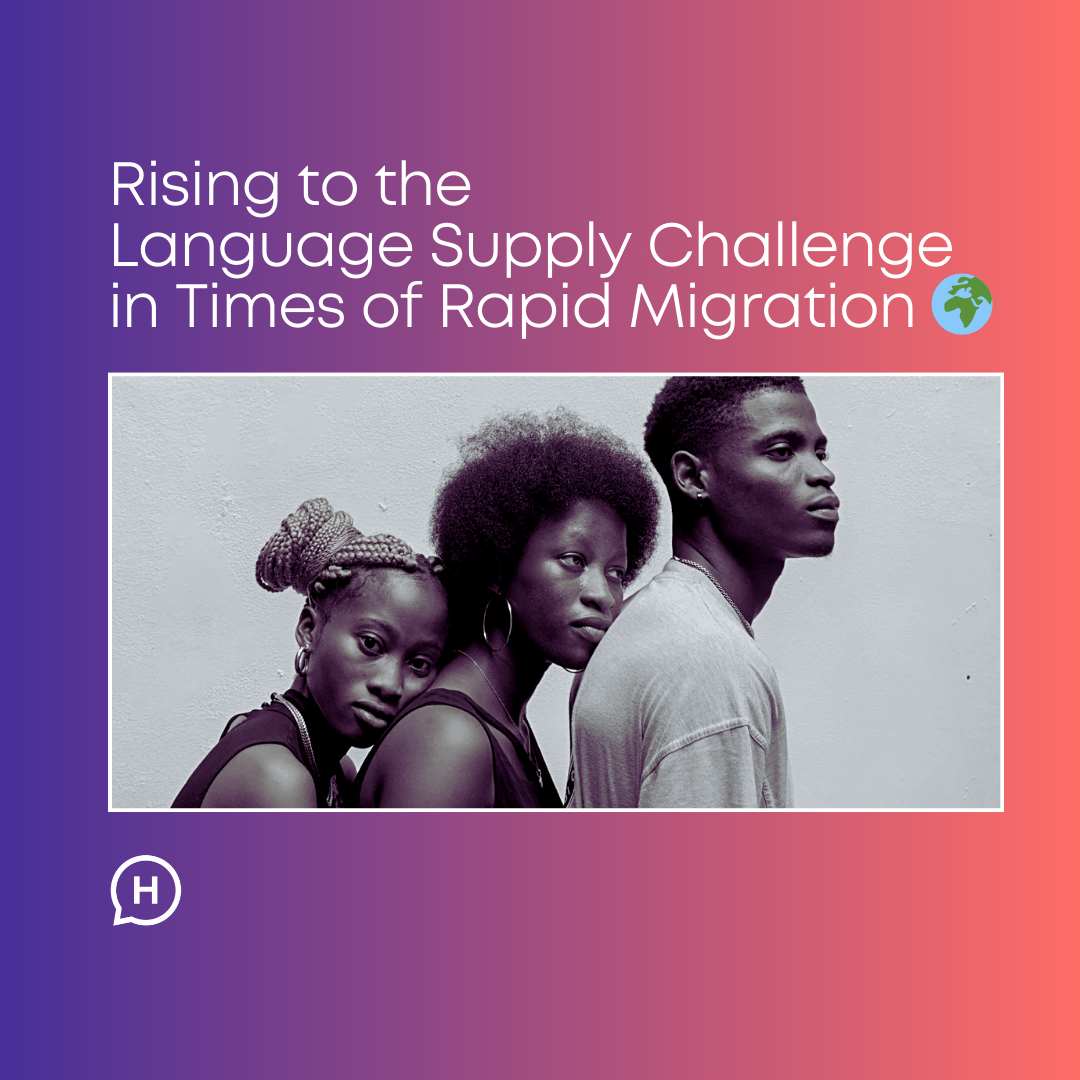How Translators and Interpreters Keep Languages Alive
 Jacqui Gigliotti
·
2 minute read
Jacqui Gigliotti
·
2 minute read

Introducing Henry, a Cantonese interpreter who retired from his professional career and now dedicates his time to supporting his fellow community members.
In an increasingly globalised world where communication transcends borders, languages are both bridges and barriers.
Languages are essential to education and sustainable development, serving as the primary means through which knowledge is transferred and cultures are preserved. With approximately 8,324 languages in the world today, many are at risk of disappearing due to globalisation and societal changes.
Amidst this dynamic linguistic landscape, translators and interpreters play an essential role not just in facilitating understanding but in keeping languages vibrant and alive.
Here's how they achieve this monumental task:
Preservation of Cultural Nuances
Translators and interpreters are more than just linguistic conduits; they are cultural ambassadors. They carry the weight of cultural nuances, idioms, and expressions unique to each language. By translating literature, films, music, and documents, they ensure that cultural heritage isn't lost but shared across different linguistic communities. For instance, when a translator adapts a novel from Spanish to English, they're not just translating words but also the cultural context, thereby preserving and disseminating cultural identity.
Revitalisation of Endangered Languages
Many languages around the world are at risk of extinction, with fewer and fewer speakers each year. Translators and interpreters can act as linguists in these scenarios, working to revitalise these languages. Projects like translating educational materials, children's books, or even digital content into lesser-known languages can encourage younger generations to learn and use their ancestral languages, thus keeping them alive.
Education and Language Teaching
Translators often work in educational settings, creating materials or translating textbooks, which directly impacts language learning. By providing resources in various languages, they help learners master new languages while simultaneously promoting the use of their mother tongue. Interpreters in educational environments ensure that non-native speakers can engage with content without losing their cultural and linguistic identity.
Media and Entertainment
The entertainment industry has become a powerful tool for language preservation. Translators dub, subtitle, or localise movies, TV shows, video games, and apps, bringing content to a global audience while respecting the original language's integrity. This not only broadens the audience for these works but also encourages language learning and appreciation, as people are intrigued by the original language after enjoying translated versions.
Diplomatic and Legal Contexts
In diplomacy, international law, or global business, interpreters ensure that language does not become a barrier to understanding or cooperation. By facilitating communication in multi-lingual settings, they uphold the relevance of each language in international discourse. This constant use in high-stakes scenarios validates and promotes the language's utility and importance on the world stage.
Technology and Innovation
With the advent of AI and machine translation, human translators and interpreters are pivotal in training these systems, ensuring accuracy, and maintaining the human touch in communication. They also translate software, websites, and apps, making technology accessible in multiple languages, thus encouraging digital inclusivity and language use in tech spaces.
Community Engagement
Local and indigenous communities often rely on translators and interpreters for services like health care, legal aid, or education. By translating important information or interpreting during community events, they keep local dialects and languages functional, fostering pride and continuity in language use within these groups.
Conclusion
Translators and interpreters are the unsung heroes in the battle against linguistic extinction. Through their work, they breathe life into languages, ensuring they are not only preserved but celebrated. They weave the rich tapestry of human culture through the threads of words, making sure every language has a voice in our global conversation. Their efforts remind us that every language has a story, a culture, and a community behind it, all of which deserve to be heard and understood.
In this era of globalisation, let's appreciate the silent guardians of our linguistic heritage, the translators and interpreters who keep our world's languages alive.











.png)

